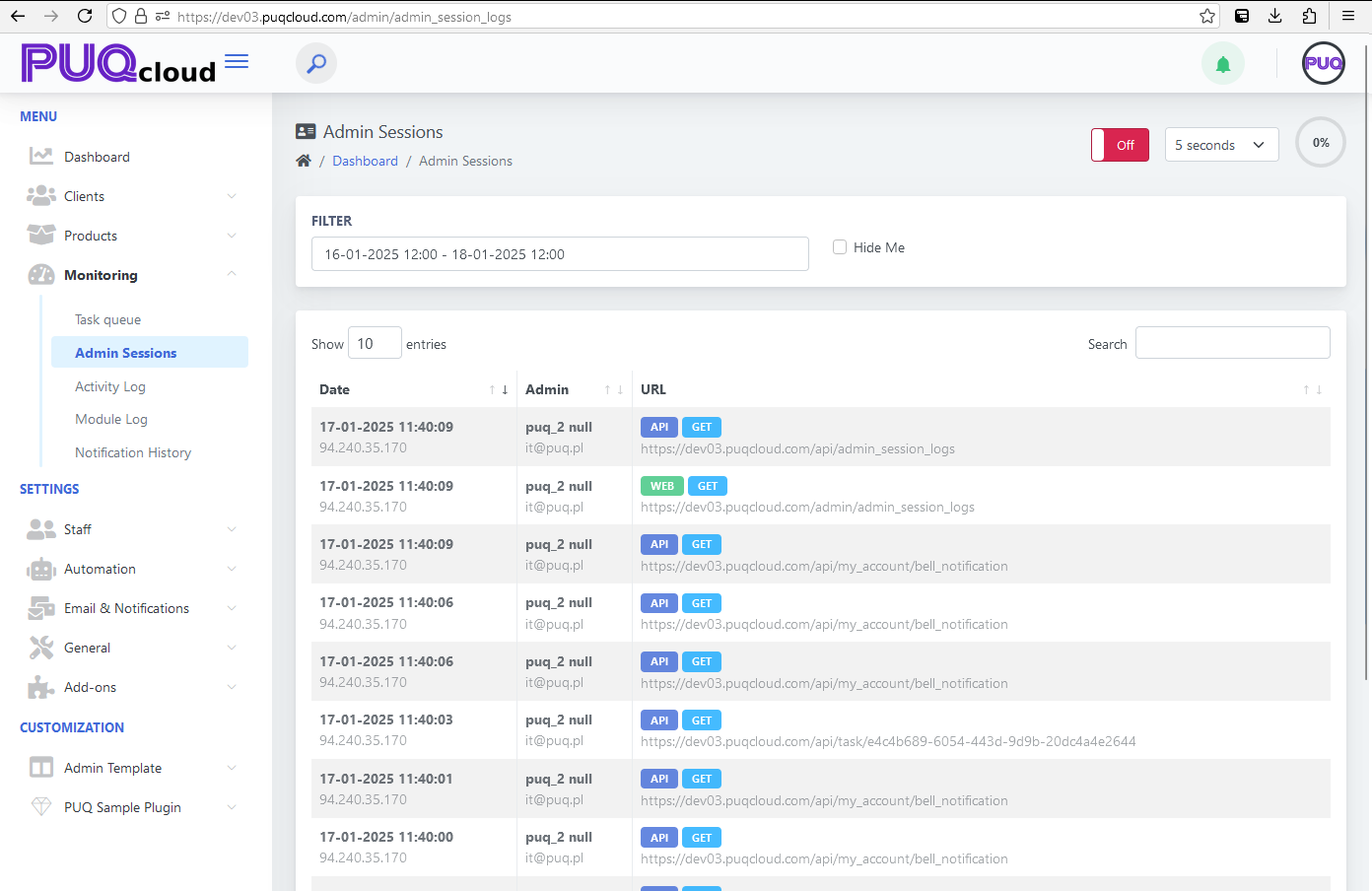Monitoring: Admin Sessions Overview
PUQcloud Panel
Order Now | Download | FAQ
The Admin Sessions section within the Monitoring menu of the PUQ Cloud Panel provides detailed logging and tracking of administrative activity. This section ensures transparency and accountability by maintaining a comprehensive log of all administrator sessions.
Key Features:
- Session Logs: The section lists all administrative sessions, including details such as:
- Date: The exact date and time when the session occurred.
- Admin: The name or identifier of the administrator who initiated the session.
- IP Address: The IP address from which the administrator accessed the system.
- URL: The specific URL accessed by the administrator during the session, categorized as either API or WEB.
- Filtering Options:
- Date Range: Allows filtering sessions based on a specified date and time range.
- Hide Me: A toggle option to exclude the current administrator’s sessions from the view for better focus on other administrators.
- Real-Time Updates: The section can be set to auto-refresh at intervals such as 5 seconds, ensuring administrators see the latest activity logs in real-time.
- Pagination: Supports navigation through a large number of logs, with options to select the number of entries displayed per page.
Details Logged:
The following details are captured for each session:
- Type: Categorized as API calls or WEB-based interactions.
- HTTP Method: Specifies whether the action was a GET, POST, or another HTTP method.
- Session Activity: Tracks specific actions taken by the administrator within the system, such as accessing logs, modifying settings, or interacting with modules.
Usage:
The Admin Sessions section is essential for tracking administrative activities, troubleshooting issues, and maintaining the integrity of the system. By providing a detailed overview of all sessions, administrators can monitor unauthorized access attempts, audit system usage, and ensure compliance with internal policies.


No Comments